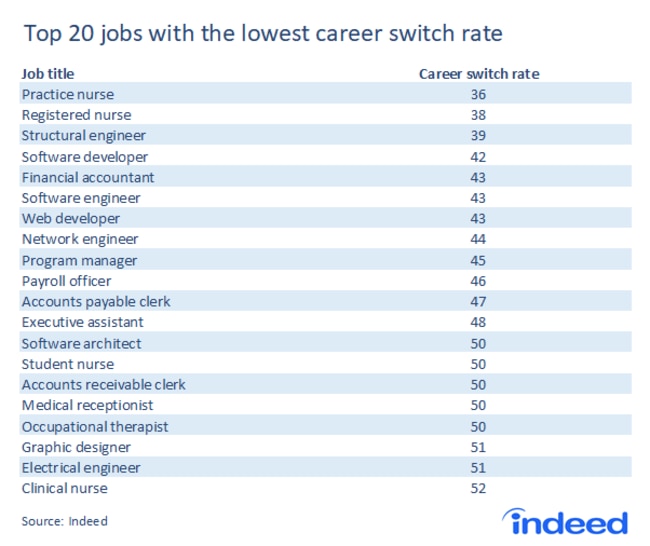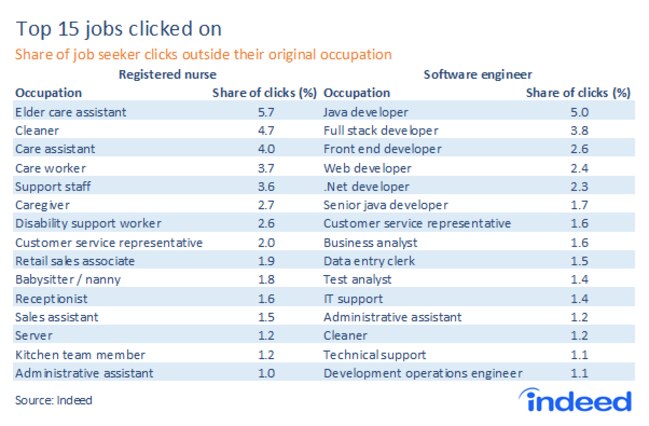The 20 jobs you’re most likely to ‘pick and stick’ with
A career sea change isn’t for every one. New data has revealed the professions with the highest retention rates in Australia.
THEY’RE the professions flying in the face of having multiple careers in a lifetime.
New research shows nursing and engineering are the jobs you stick with — they are the industries with the highest retention rates in Australia.
Nurses, engineers and tech workers are among the least likely workers to make a career sea change, according to the study by job website Indeed.
And when workers in those professions do switch jobs, they tend to opt for roles to which they can bring their existing skills.
ABS data shows 3.3 per cent of Australians changed not only their employers, but also their careers in the year ending 2017.
But the data compiled by Indeed’s APAC economist Callam Pickering, revealed nurses and engineers were most likely to stay loyal to their skill set.
By examine how frequently people looking for work via Indeed clicked outside their professions in 2016 and 2017, and found tech workers and accountants were alongside nurses and engineers in their likelihood to stay loyal to their profession.
Even when nurses do change careers, they show interest in jobs which require caring for others, such as elderly or disability care.
Practice nurses (usually employed by GPs) and registered nurses were the two occupations in Australia people were least likely to leave for entirely new careers.
The data revealed 36 per cent of practice nurses and 38 per cent of registered nurses searched for alternative careers in 2016 and 2017.
Two other nursing roles — student nurse and clinical nurse — also ranked highly among jobs workers rarely left.

Meanwhile for engineers, the switch rate was 39 per cent for structural engineers, 43 per cent for software engineers and 51 per cent for electrical engineers.
Software developer and financial accountant rounded out the five jobs with respective switch rates of 42 per cent and 43 per cent.
WHY THEY STAY
Mainly, it seems, because the jobs are there: A combination of fast growth in the healthcare and tech sectors, and the corresponding growth in the number of jobs in those industries partially explains the loyalty — or the reluctance to ditch the skills for something entirely new.
A shortage of nurses in Australia means the skills are in high demand this year, with nursing the occupation with the highest number of postings on Indeed.
Meanwhile, demand for tech professionals has grown 12.5 per cent in two years.
AND WHY THEY LEAVE
Analysing the nurses and software engineers who clicked outside their profession and skill set — on jobs such as cleaner, administrative assistant and customer service representative — the data suggests changing careers may not necessarily be all about more pay or advancing their careers.

“Career progression, including compensation and career advancement, is obviously one reason.” the study says.
“But other people might be motivated by bad experiences in their current fields or external factors, such as redundancy, health or relocation. Others may want to relieve stress, improve job security or find greater work/life balance.
“The few who leave their profession often seek entry-level positions, which may be evidence of changing personal circumstances. For example, they may need greater flexibility after having children or may want a job after relocation.



